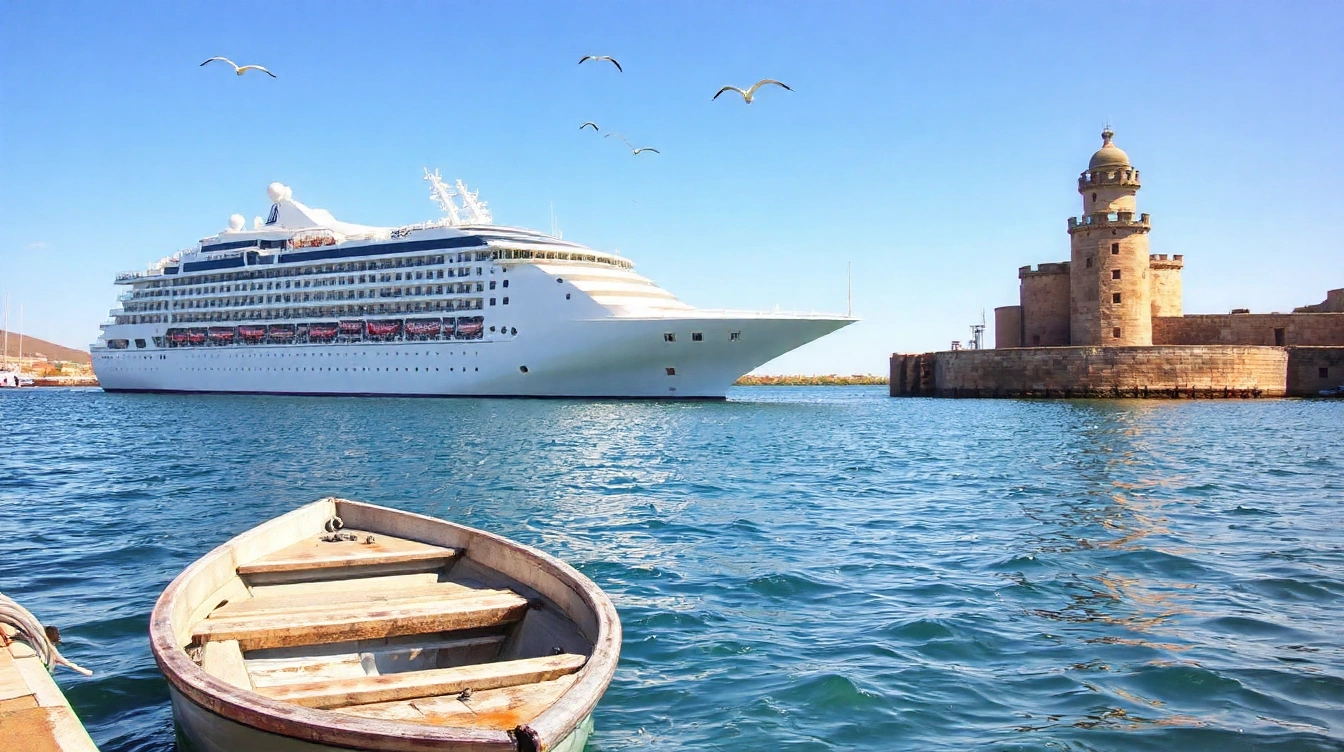Enhancing UK Tourism Through International Cruise Arrivals
The growth in cruise tourism UK has become a significant driver of international visitors arriving at British ports. This increase in cruise ship arrivals not only boosts the number of tourists but also substantially elevates visitor spending in key UK port cities. As cruise ships dock, passengers often explore local attractions, dine in restaurants, and shop in nearby businesses, injecting vital revenue into the local economy.
International visitors arriving via cruise lines contribute notably to both the national and local economies. The economic impact extends beyond immediate spending; it supports jobs in hospitality, retail, transportation, and entertainment sectors. Furthermore, the steady influx of cruise tourists encourages investment in infrastructure and amenities, enhancing the overall visitor experience and attractiveness of cruise tourism UK.
In the same genre : What unique experiences can you have on a UK cruise in Scotland?
By capitalizing on the steady increase in international visitors through cruise ship arrivals, UK port cities can sustain economic growth while showcasing their unique cultural and historical assets. This middle ground between leisure travel and economic development highlights the importance of cruise tourism UK as a strategic asset for continued prosperity.
Supporting Local Businesses and Job Creation
Supporting local economic benefits is a key advantage of UK cruise ports. When cruise ships dock, they attract thousands of passengers who frequently explore nearby towns and cities. This influx provides a welcome boost to small businesses such as cafes, shops, and tour operators, helping them thrive during the busy cruise season.
Also to see : How Has UK Tourism Been Transformed by the Rise of Cruise Travel?
In terms of job creation, UK cruise ports generate both direct and indirect employment opportunities. Direct jobs include port workers, security staff, and dockside operators who manage the vessels and passenger processing. Indirect employment stems from suppliers and service providers who support cruise lines, including local fishermen, transport companies, and hospitality businesses.
Collaboration between cruise lines and local suppliers is crucial for fostering a healthy economic ecosystem. Many cruise companies actively seek to buy goods and services locally, reinforcing the cycle of financial benefit within the community. This partnership not only ensures fresh, authentic experiences for passengers but also spreads the economic gains broadly. Residents can feel confident that UK cruise ports contribute positively beyond just tourism numbers.
Showcasing Regional Destinations Beyond London
Exploring regional tourism through UK cruise destinations offers a fantastic way to spread visitor demand beyond the capital. Many travellers are unaware that areas like Liverpool, Southampton, and Greenock serve as important cruise hubs. Highlighting these less-visited towns allows cruise itineraries to introduce passengers to diverse cultural, historical, and scenic experiences outside of London’s usual bustle.
Liverpool, for example, is renowned for its rich maritime history and vibrant music scene. Southampton, another key UK cruise destination, provides access to medieval architecture and the New Forest. Greenock, situated on the west coast, offers stunning views of the Scottish Highlands, showcasing natural beauty less explored by cruise tourists.
Promoting these regions helps disperse tourism benefits more evenly across the UK, reducing overtourism in popular spots. This strategy supports local economies by attracting visitors who might otherwise never leave London. In doing so, regional tourism flourishes, offering authentic experiences while easing pressure on saturated locations.
Incorporating these destinations into UK cruise itineraries not only enriches the travel experience but also fosters sustainable growth in the national tourism landscape.
Infrastructure Development and Marketing Strategies
Significant port investments have recently transformed the UK’s cruise infrastructure, enhancing dock capacity and passenger amenities. These upgrades accommodate larger vessels and improve the overall cruise experience, making UK ports more competitive globally. For example, expansions at key ports have introduced state-of-the-art terminals and streamlined embarkation processes, which attract more cruise operators.
Marketing strategies focus heavily on tourism promotion UK, with integrated campaigns designed to target cruise travellers. These campaigns highlight the unique destinations accessible from upgraded ports, blending cultural attractions with seamless travel options. By promoting distinct regional experiences, the UK reinforces its appeal as a diverse cruise hub.
The role of government and tourism boards is crucial in this effort. Strategic partnerships facilitate funding for infrastructure while coordinating promotional activities to maximize impact. Government-led initiatives often align with broader national tourism goals, ensuring that investments in cruise infrastructure support sustainable growth. In doing so, the UK leverages both its historical assets and modern facilities to elevate its cruise tourism sector, creating an inviting environment for both operators and passengers.
Expert Insights and Future Opportunities for UK Cruise Tourism
Industry experts widely agree that the cruise tourism strategy UK has become pivotal in shaping a resilient and expanding market. Government initiatives are front and center, aiming to enhance port infrastructure and streamline passenger experiences to attract more visitors. Such government initiatives include funding grants for sustainability projects and marketing campaigns promoting UK cruise destinations globally.
Tourism authorities emphasize the importance of balancing growth with environmental responsibility. This calls for innovation in cleaner technology and smarter scheduling to reduce congestion at popular harbors. Experts foresee a rise in themed cruises and immersive cultural experiences tailored to UK’s historic sites, aligning perfectly with the cruise tourism strategy UK’s focus on differentiation.
Looking ahead, a crucial challenge remains: adapting to shifting traveler preferences post-pandemic, including heightened health protocols and demand for flexibility. However, with ongoing governmental support and strategic industry partnerships, the sector is well-positioned to thrive. Addressing these challenges proactively will help secure the UK’s place as a leading global cruise hub while ensuring sustainable, enjoyable growth. The combination of expert insight and targeted government initiatives demonstrates a strong pathway forward for UK cruise tourism.











